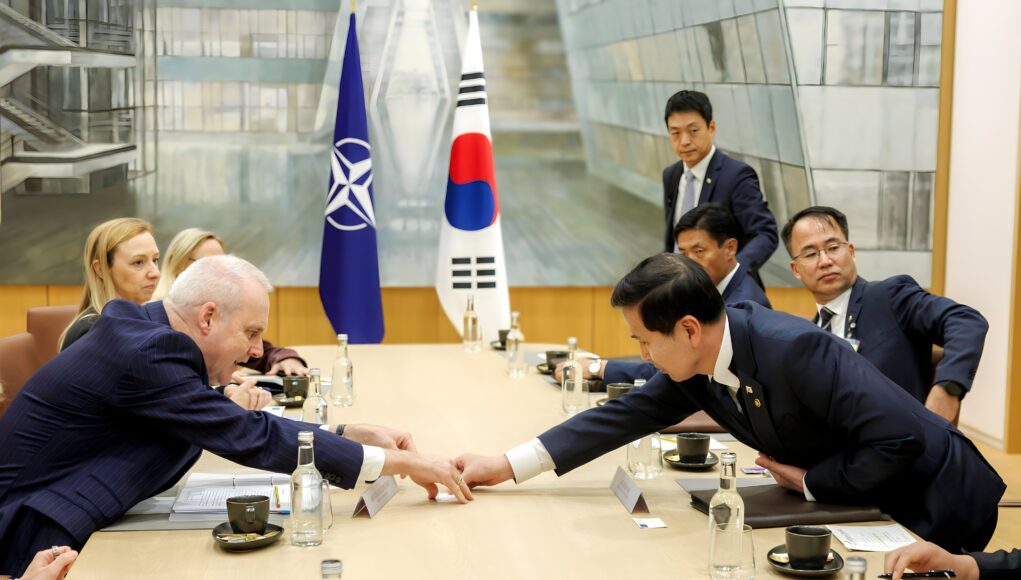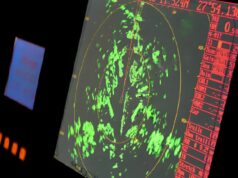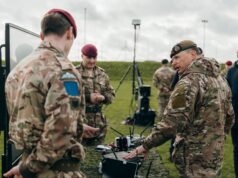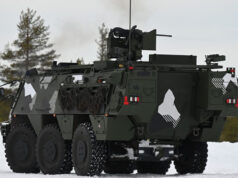NATO is set to make history this week by holding a session with Indo-Pacific partners and the European Union at its defence ministerial in Brussels.
This is the first time countries from the Indo-Pacific will formally engage in NATO discussions, marking a significant moment as the Alliance works to tackle security challenges on a global scale.
During a briefing organised by the U.S. State Department, Ambassador Julianne Smith, the U.S. Permanent Representative to NATO, spoke to the UK Defence Journal and others the importance of this new partnership.
“For the first time, we will have a session during the ministerial with our Indo-Pacific partners and the European Union to talk about a variety of subjects, shared challenges, and our shared support for Ukraine,” she explained.
This step highlights NATO’s recognition that today’s security threats are increasingly interconnected. Though geographically distant from NATO’s usual areas of focus, the Indo-Pacific region is becoming crucial to the Alliance due to concerns over China’s growing influence and shared worries about cyber threats, terrorism, and hybrid warfare.
Global Reach
By inviting Indo-Pacific nations, NATO is showing that it aims to strengthen its global network of allies. This comes at a time when China’s support for Russia in Ukraine, along with other regional concerns, has prompted the Alliance to seek stronger partnerships in the Indo-Pacific.
“The Indo-Pacific dialogue reflects how NATO is expanding its view on collective security,” Ambassador Smith said.
She added that this collaboration helps form “the connective tissue” needed to combat a wide range of modern threats, not just military ones, but also those targeting cyber security, democracy, and international rules.
A key focus of this historic session will be on support for Ukraine as it continues to face aggression from Russia. Ambassador Smith reiterated that NATO remains united with its Indo-Pacific partners in providing the necessary assistance to Ukraine, including military and humanitarian aid.
This move signals NATO’s broader ambition to foster closer ties with global partners, recognising that security challenges in the Indo-Pacific, including China’s assertiveness and North Korea’s activities, have far-reaching consequences.
Ambassador Smith mentioned that NATO is no longer solely focused on the Euro-Atlantic region but is increasingly working with nations beyond its borders to tackle shared threats. “There’s added energy in the halls of NATO right now,” she noted, as the Alliance gears up for deeper, more inclusive cooperation with its global partners.
As NATO prepares for its summit in The Hague next June, this defence ministerial, along with the inclusion of Indo-Pacific nations, marks a pivotal step in expanding NATO’s reach and strengthening its alliances in an increasingly complex global security landscape.














Are we moving slowly but surely towards a WDTO (World Defence Treaty Organisation) aimed at the democratic countries of the world which may well force countries which are sitting on the fence to either choose Democracy or risk attack by another Autocracy. It would also resolve issues such as the Falkland islands. A WDTO would provide the inhabitants with the security it needs whilst giving it independance if it so wished without fear of attack from Argentina. It would be able to contibute both bases and percentage of GDP.
If for the Falklands(I think that issue is settled anyway by the wishes of the inhabitants backed up by UK Armed Forces), then why not Taiwan too? An independant, prosperous, free & secure Taiwan is in the best interests of the world, threatened only by the monsterous agression of a bullying & brow beating CCP. The CCP is the main world threat. They’ve been attacking us right here in Europe or in N America for decades besides seeking leverage & control everywhere else.
The people of Taiwan have the right to self determination along with everyone else. They should not be bullied by anyone. If they wished to join a WDTO then they should gain great benefit from that. To be honest so should China – it would allow them to normalise relations around the globe.
1960. Resolution 1514 (XV) proclaims the necessity of bringing colonialism in all its forms and manifestations to a speedy and unconditional end and declares that all people have a right to self-determination.
This includes the residents of the Falklands however they are more than aware that they need the UK in order to protect themselves from invasion by the Argentinians. They should be able to become independent and still have a mechanism whereby they have protection from not just the UK but other powers as well.